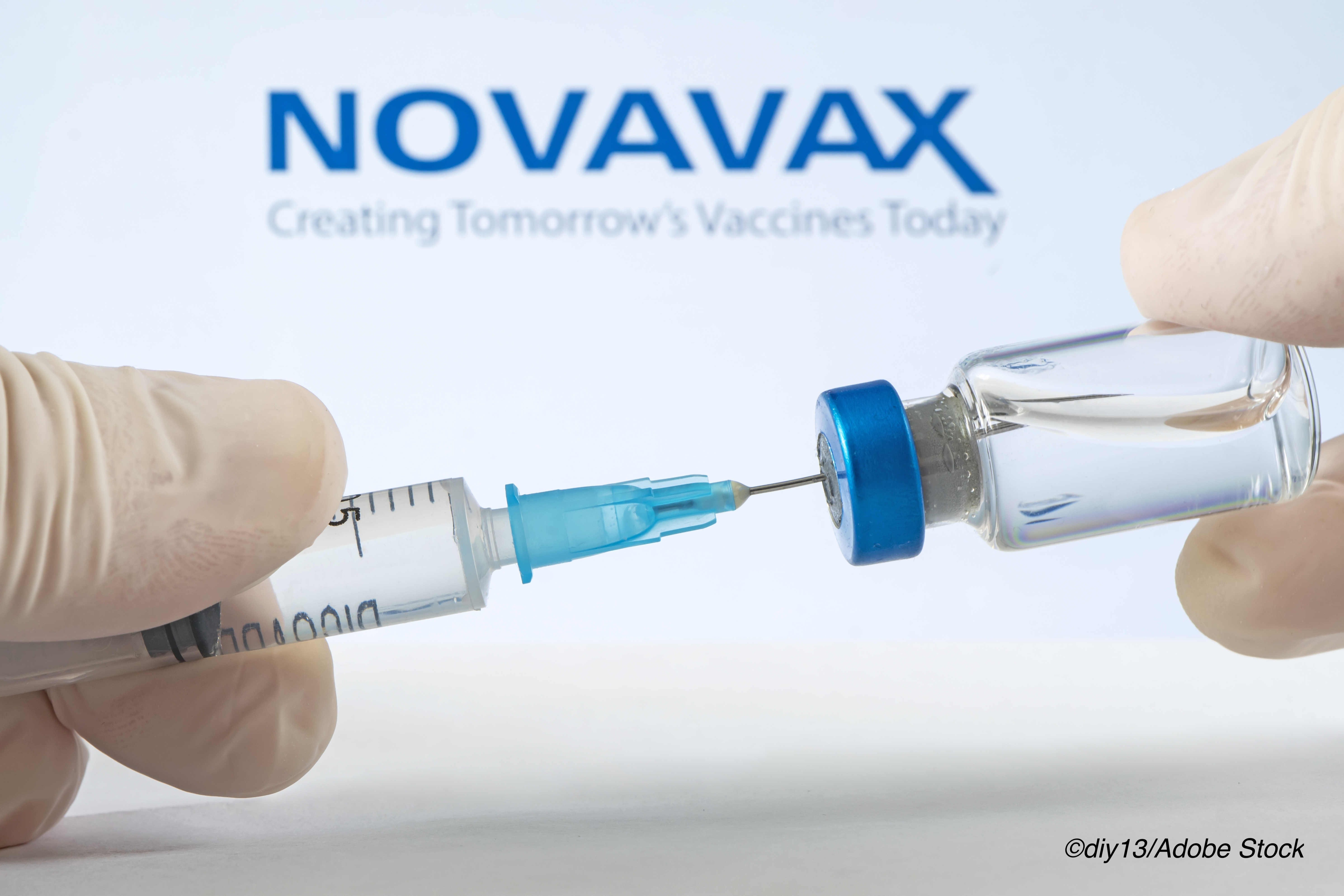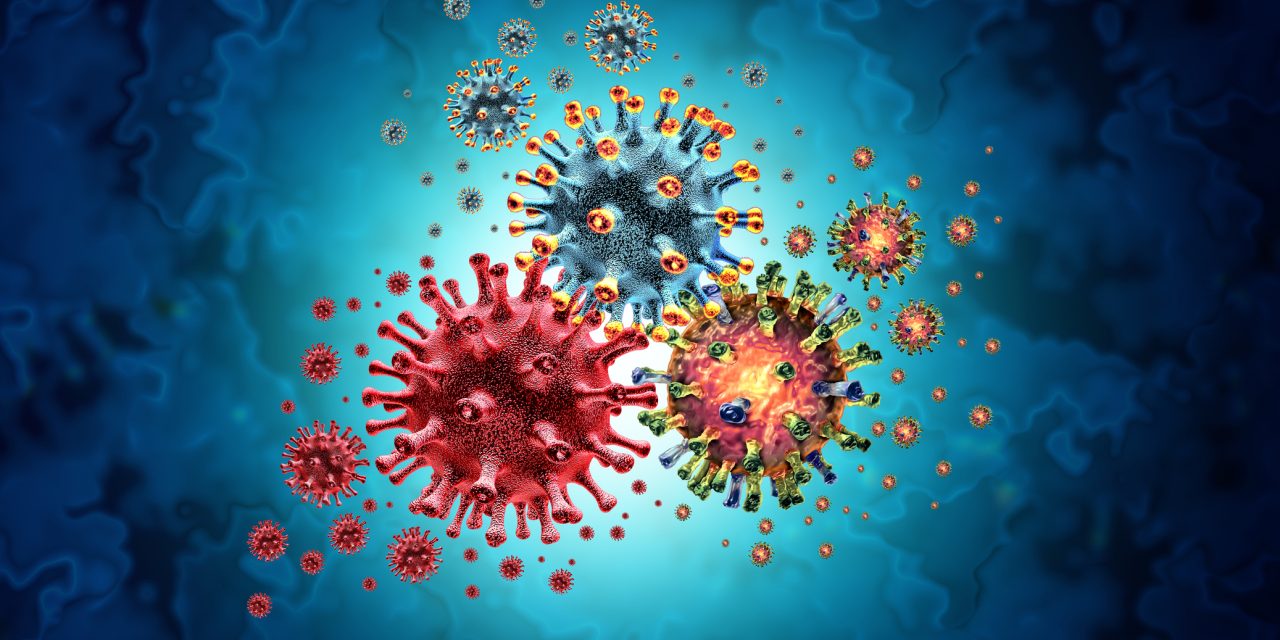
The novel recombinant SARS-CoV-2 nanoparticle vaccine NVX-CoV2373 showed efficacy in preventing symptomatic Covid-19 during an outbreak in South Africa involving predominant transmission of the B.1.351 variant, researchers reported.
Among study participants who were seronegative for SARS-CoV-2 at baseline, the two-dose vaccine showed an efficacy for preventing symptomatic disease of 49.4%, with an efficacy of roughly 60% among those without HIV infection.
The preliminary findings from the South African study, funded by the vaccine’s developer Novavax Inc., suggest that vaccination with the NVX-CoV2373 vaccine “conferred a degree of cross-protection against (the B.1.351) escape variant,” wrote researcher Vivek Shinde, MD, of Novavax (Gaithersburg, Maryland), and colleagues.
Peer-reviewed early data from the study were published online May 5 in The New England Journal of Medicine.
A total of 4,387 people randomized to participate in the South African study received at least one injection of the vaccine or placebo, with approximately 30% showing evidence of SARS-CoV-2 positivity at baseline.
Among 2,684 baseline SARS-CoV-2 seronegative participants (6% HIV-positive), predominantly mild-to-moderate Covid-19 occurred among 15 in the vaccine group and 29 in the placebo group (vaccine efficacy, 49.4%; 95% CI, 6.1-72.8).
Vaccine efficacy among the HIV-negative study participants was 60.1% (95% CI, 19.9 to 80.1).
Roughly 9-out-of-10 (92.7%) sequenced isolates involved the B.1.351 variant, and post hoc vaccine efficacy against this variant was 51% among the HIV-negative study participants.
Serious adverse events were rare in both the active vaccine and placebo groups, but local and systemic reactogenicity events were more common in the vaccine groups.
The study joins two other recently reported trials involving participants in South Africa vaccinated during wide circulation of the B.1.351 variant.
In a large multinational phase III trial of the single dose Johnson & Johnson Ad26.COV2.S vaccine, efficacy 28 days after vaccination was reported to be 64% among the participants in South Africa. But the vaccine proved to be significantly less effective against the B.1.351 variant.Meanwhile, in a trial of the Oxford-AstraZeneca ChAdOx1 vaccine, vaccination failed to protect participants with the B.1.351 variant against mild-to-moderate Covid-19.
Of the roughly 2,000 South Africans enrolled in the placebo-controlled trial, 3.2% and 2.5%, respectively, in the placebo and two-dose ChAdOx1 Covid-19 vaccine groups developed mild-to-moderate Covid-19, and vaccine efficacy was determined to be just over 10% among people infected with the B.1.351 variant.
The preliminary findings from the study of the Novavax NVX-CoV2373 vaccine largely included data on young and healthy study participants and Covid-19 symptoms were generally mild to moderate.
As a result, Shinde and colleagues noted that the vaccine’s efficacy against severe disease is not yet known.
“Most large trials of vaccine efficacy against Covid-19 have reported notably higher vaccine efficacy against severe disease than against mild-to-moderate disease,” they wrote. “Additional follow-up may shed light on whether naturally acquired immunity to prototype-like virus alters the severity of infection caused by variant viruses.”
In an accompanying commentary, Kathleen Neuzil, MD, of the University of Maryland School of Medicine, Baltimore, wrote that the B.1.351 variant “has shown evidence of increased transmissibility, a considerable reduction in neutralization by convalescent and post-vaccination serum, and significantly decreased neutralization by monoclonal antibodies.”
She noted that while variants of concern will continue to emerge, “vaccine evaluations against new variants will be more challenging going forward as data from randomized, placebo-controlled clinical trials become less common owing to enhanced availability of vaccines.”
“A global scientific agenda that encompasses extensive genomic surveillance detailed ’correlate of protection’ evaluations, and robust post-introduction surveillance and sequencing is necessary to measure the effect of new and current vaccines against SARS-CoV-2 variants,” Neuzil wrote.
She concluded that the emergence of variant strains of SARS-CoV-2 “is arguably the greatest threat to control of the Covid-19 pandemic.”
“A coordinated global prevention and control plan is the only way forward. Global investments in vaccine science and technology must be accompanied by investments in public health, genomic and disease surveillance, and programmatic immunization infrastructure to mitigate the effects of Covid-19 and future pandemics,” she wrote.
-
The nanoparticle vaccine NVX-CoV2373 showed efficacy in preventing symptomatic Covid-19 during an outbreak in South Africa involving predominant transmission of the B.1.351 variant.
-
Among study participants who were seronegative for SARS-Cov-1 at baseline, the two-dose vaccine showed an efficacy for preventing symptomatic disease of 49.4%.
Salynn Boyles, Contributing Writer, BreakingMED™
This research was funded by Novavax Inc. Shinde and other researchers are employees of Novavax. Editorial writer Kathleen Neuzil reported receiving grants from Pfizer and grants from NIH, outside the submitted work.
Cat ID: 190
Topic ID: 79,190,730,933,190,926,192,561,927,151,928,925,934


